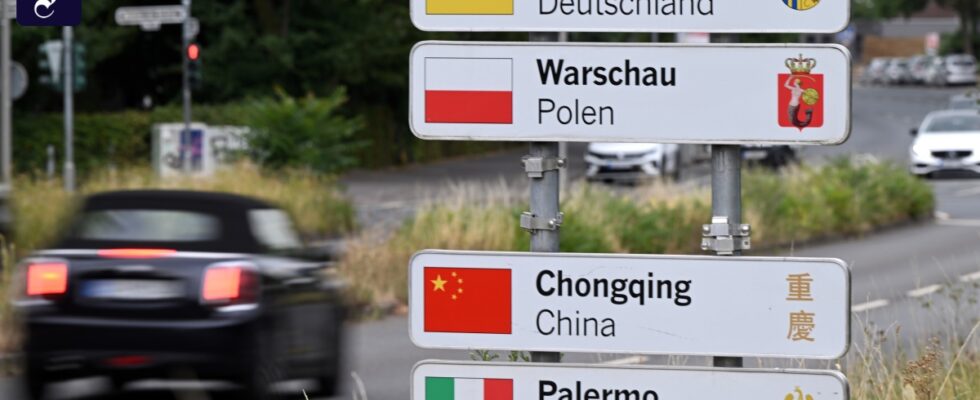The city of Kiel has announced that it intends to develop a partnership with the Chinese city of Qingdao. The council wants to examine cooperation, for example in marine protection. So far, the cities have only cooperated in sailing. What strategy is Beijing pursuing with the town twinning in Germany?
In Germany, town twinning is a matter for the towns. In China, the system is much, much more centralized. The Chinese cities are in constant contact with central offices and cannot decide on city partnerships on their own. With such partnerships, China is pursuing an accompanying strategy in order to be able to expand its political influence. And especially in countries like Germany, where China is encountering more and more resistance from the federal government, such partnerships are used to generate support at the local level and sometimes also to put pressure on the national governments.
What is Beijing’s goal?
The Chinese idiom for this strategy is “use the land to conquer the city”. By this is meant using smaller, less powerful actors to encircle and ultimately politically overwhelm the larger, more powerful actor. The strategy is not new. The Communist Party has been using such methods since the 1930s. Not everything that happens locally is inherently evil. There are many legitimate and useful exchange formats. But German cities have to be aware that there is a larger strategy behind the partnerships, which is being pursued on the Chinese side with a coordination that is lacking on the German side.

Mareike Ohlberg is a senior fellow in the Asia program of the Global Marshall Fund. Previously, she worked at the Mercator Institute for China Studies (MERICS). She covers Chinese foreign policy, media and digital policy, and the Communist Party’s influence campaigns in Europe.
:
Image: German Marshall Fund
What are the risks of town twinning?
On the German side, actors who have relatively little experience with the country often come into direct contact with China and are therefore unable to classify many things immediately. In addition, they primarily have local interests in mind and not necessarily security aspects. The problem is that this leads to decisions being made that may be in the short-term interest at the local level, but may not be in Germany’s long-term interest. While Chinese components in the 5G network were being discussed at federal level, Chinese companies such as Huawei have made concrete offers to German cities. When China gets stuck at the national level, pressure is built and facts established at the local level.
What does this pressure mean for cities?
There are cases in which Chinese authorities have tried to influence specific projects in German cities. For example, to prevent a town twinning with Taiwan. The Chinese consulate or embassy will often point out good relationships that would otherwise be jeopardized. We haven’t looked at this problem for far too long and now we don’t have a good overview of what’s happening in the cities and municipalities of China.
Would you advise a municipality not to partner with a Chinese city?
I am not fundamentally against town twinning. Those are good channels to get in touch. But a partnership must be prepared. The city has to understand that the other side is more centralized, that the Chinese side has a lot more resources. Most Chinese cities have a much larger international department. So far, it has often been the case that the Chinese side is simply doing more preparation and that the agenda is accordingly often set by China. German cities need to be aware of this. And they need to think carefully about how to ensure that the partnership doesn’t become a one-sided affair. We need significantly more formats in which the municipalities can exchange information about their cooperation with China. Where this is already happening, the cities and municipalities are finding that they have very similar problems. Especially if they do something that the Chinese side doesn’t like. That the embassy, the consulate or the Chinese partners intervene directly. It can help to come up with a common strategy on how to counteract this.
Is the federal government also asked to better inform the municipalities about the risks of town twinning?
I think many municipalities and cities would like central credit bureaus where they can get information on risky areas in cooperation with China and also a better understanding of what the political structures on the Chinese side are like. At the federal level, this awareness, this knowledge, is now available in many places. This is exactly what has led to more talk about cooperation with China. But this knowledge must now be brought to the women and men who make decisions in the communities. In the current situation, a city or municipality cannot create the perfect model for a partnership with a Chinese city on its own.
